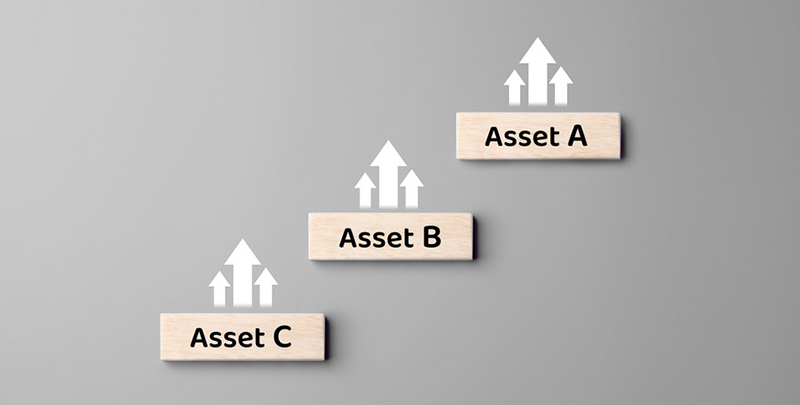- Open digital A/C
Explore 250+ banking services on Axis Mobile App
Scan to Download
- Current Account
- Pay
- Collect
- Trade
Services
Solution for Exporters
- Debt & Working Capital
24x7 Loans
For MSMEs with turnover up to ₹30 Cr
- Treasury
- Transact Digitally
- Home
- Blogs
- Taxation Guide
- Asset allocation and why it matters

Taxation
Asset allocation decoded: The winning formula for savvy investing
Asset allocation is how you divide your money across different types of investments, such as stocks, bonds, real estate, gold, and cash. Instead of betting everything on only one option, with asset allocation, you can spread the risk and diversify your portfolio. This helps protect your money in case one of your invested assets underperforms, giving you a better chance at steady, long-term growth.
Why is asset allocation important?
Markets move up and down every day. Sometimes, stocks are at their all-time high, and sometimes, markets may stagnate. This is why relying on just one asset class is an extremely risky strategy.
Over the last decade, for example, Indian equities have provided double-digit returns, but some years in between were full of swings and periodic downturns. On the other hand, gold and fixed deposits have remained stable during the tough times.
Did you know?
In 2020 Covid Crash, as the stock markets went on a rollercoaster ride (drawdown of 40% between January 2020 peak to March 2020 low), gold prices shot up by around 40% (January – August 2020). If all your investments were in stocks, that year would have been quite stressful. However, a diversified portfolio may have helped you ride out the storm calmly.
Several studies indicate that effective asset allocation plays a key role in helping investors manage risk and achieve balanced returns. One such study reveals that asset allocation accounts for a significant 91% of the risk reduction in a portfolio—far outweighing other factors like security selection and market timing. This leads to better risk-adjusted returns for investors.
What’s the best asset allocation strategy?
Your asset allocation strategies should depend on several individual factors such as your age, financial goals, risk potential, investment corpus, timeline, etc. There is no one best asset allocation strategy; only the one that suits you best.
If you are looking for a stable and conservative option, perhaps to save on tax or balance your market exposure, you can opt to balance out your risks by diversifying your investments into debt or gold-backed investments. Similarly, if you want to take on more risk with a vision to achieve greater long-term profits, your asset allocation plans should involve a heavy mix of equities and equity-oriented mutual funds.
Conclusion
Start by listing out your goals be it buying a home, international travel, your child’s education, or retirement. Match your assets to meet these timelines and use only trusted platforms or seek professional advice to invest. Regularly update your asset allocation and embrace diversification—it’s not just smart, it’s paramount.
Disclaimer: This article is intended solely for informational purposes. The views expressed in this article are personal. Axis Bank and/or the author shall not be liable for any direct or indirect loss or liability incurred by the reader arising from reliance on the content herein. Readers are advised to consult a qualified financial advisor before making any financial decisions. Axis Bank does not endorse or guarantee the accuracy of any third-party content or links included in this article.
Table of Contents
Related Services
Learning Hub
Look through our knowledge section for helpful blogs and articles.
5 Financial Gifts for Father’s Day
Father’s Day is usually celebrated on the third Sunday of June in many parts of the world...
Don’t Keep Tax Planning For the Last Minute. Invest in a Tax-Saver FD Today!
A variety of investment avenues are available today...
Tax Saving in 2017
Who doesn’t think of saving taxes? Of course everyone! But the question is how...
Loans That Make You Eligible For A Tax Benefit
To fulfil our dreams we often plan finances, but at times, we also consider availing of a loan.












